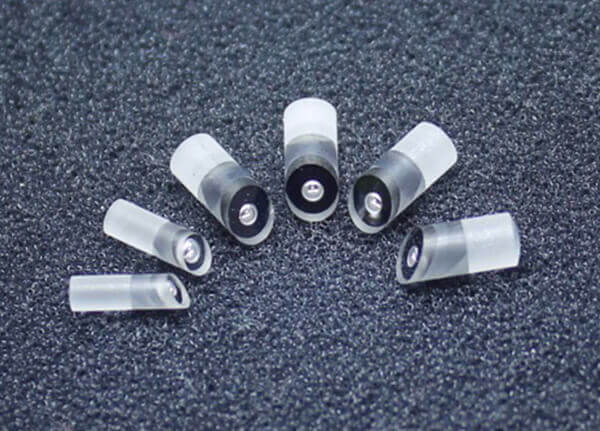歡迎來到匠仁醫(yī)療設備有限公司網(wǎng)站!


內窺鏡維修設備長期使用后,性能下降、部件老化等問題頻發(fā),通過科學翻新可使其重獲新生。從拆解檢測到功能復原,每個環(huán)節(jié)都需專業(yè)操作,方能讓設備恢復精準高效的工作狀態(tài)。
After long-term use, problems such as performance degradation and component aging occur frequently in endoscopic maintenance equipment. Scientific refurbishment can help it regain its vitality. From disassembly and testing to functional restoration, each step requires professional operation to restore the equipment to a precise and efficient working state.
翻新前,需對設備進行全面診斷。用專業(yè)工具檢查設備外觀,查看是否存在外殼破損、顯示屏劃痕;測試核心功能,如鏡頭的清晰度、光源的亮度、操控桿的靈敏度,記錄設備各項參數(shù)與故障點。對于光學部件,用顯微鏡觀察鏡片是否有霉斑、劃痕,檢測圖像傳導是否存在失真、模糊現(xiàn)象,這些細致檢查能為后續(xù)翻新提供準確方向。
Before renovation, a comprehensive diagnosis of the equipment is required. Use professional tools to inspect the appearance of the equipment and check for any damage to the casing or scratches on the display screen; Test core functions such as lens clarity, light source brightness, joystick sensitivity, and record equipment parameters and fault points. For optical components, using a microscope to observe whether there are mold spots or scratches on the lenses, and detecting whether there is distortion or blurring in image transmission, these detailed inspections can provide accurate directions for subsequent refurbishment.
拆解環(huán)節(jié)要遵循規(guī)范流程。準備防靜電工作臺與專用拆卸工具,先斷開電源,依次拆卸外殼、電路板、光學組件等。對拆卸下來的部件進行編號、分類存放,防止組裝時混淆。同時,拍攝拆解過程的照片或視頻,記錄各部件安裝位置與連接方式,為后續(xù)組裝提供參考。尤其要注意,部分精密部件(如微型傳感器、光纖束)極為脆弱,拆卸時需小心謹慎,避免造成二次損壞。
The dismantling process should follow standardized procedures. Prepare an anti-static workbench and specialized disassembly tools, disconnect the power supply first, and then disassemble the casing, circuit board, optical components, etc. in sequence. Number and classify the disassembled components for storage to prevent confusion during assembly. At the same time, take photos or videos of the disassembly process, record the installation positions and connection methods of each component, and provide reference for subsequent assembly. Special attention should be paid to the fact that some precision components (such as microsensors and fiber bundles) are extremely fragile, and caution should be taken when disassembling to avoid causing secondary damage.

部件清潔是翻新的重要步驟。對于金屬外殼,使用溫和的清潔劑配合軟布擦拭,去除表面污漬、銹跡,若銹蝕嚴重,可用細砂紙輕輕打磨,之后噴涂防銹漆。光學鏡片需用專用的光學清潔劑和無塵布,沿同一方向擦拭,去除灰塵、指紋和霉斑;電路板則用無水酒精清理,去除灰塵和氧化層,確保電路暢通。清潔完成后,對部件進行干燥處理,避免殘留水分導致部件損壞。
Component cleaning is an important step in refurbishment. For metal shells, use a mild cleaning agent combined with a soft cloth to wipe off surface stains and rust. If the rust is severe, use fine sandpaper to gently polish and then spray anti rust paint. Optical lenses require specialized optical cleaning agents and dust-free cloths to be wiped in the same direction to remove dust, fingerprints, and mold; The circuit board is cleaned with anhydrous alcohol to remove dust and oxide layers, ensuring smooth circuit operation. After cleaning, dry the components to prevent residual moisture from causing damage.
修復與更換受損部件直接影響設備性能恢復。針對有劃痕的鏡片,若損傷較輕,可采用拋光技術進行修復;損傷嚴重則需更換新鏡片。對于老化的電路板元件,如電容、電阻等,使用電烙鐵進行焊接更換;磨損的操控桿、密封膠圈等機械部件,按原規(guī)格替換。更換部件時,確保新部件與原設備兼容,安裝過程中注意安裝精度,如鏡頭的對焦校準、光源的位置調整等,保證設備性能達到使用標準。
Repairing and replacing damaged components directly affect the recovery of equipment performance. For lenses with scratches, if the damage is minor, polishing technology can be used for repair; If the damage is severe, new lenses need to be replaced. For aging circuit board components such as capacitors, resistors, etc., use an electric soldering iron to solder and replace them; Replace worn mechanical components such as control levers and sealing gaskets with their original specifications. When replacing components, ensure that the new components are compatible with the original equipment, and pay attention to installation accuracy during the installation process, such as lens focus calibration, light source position adjustment, etc., to ensure that the equipment performance meets the usage standards.
組裝與調試是翻新的收尾關鍵。按照拆解的反向順序,將清潔、修復或更換后的部件依次安裝回原位,確保各部件連接牢固,螺絲擰緊程度適中,避免過緊損壞部件或過松導致設備運行不穩(wěn)定。組裝完成后,進行通電測試,檢查設備各項功能是否正常,如鏡頭成像是否清晰、光源亮度是否達標、操控是否靈敏等。對存在的問題及時調整,反復測試,直至設備性能完全恢復,達到或接近全新設備的標準。
Assembly and debugging are the key to the end of refurbishment. Install the cleaned, repaired, or replaced components back in their original positions in reverse order of disassembly, ensuring that each component is securely connected and the screws are tightened appropriately to avoid damaging the components due to over tightening or causing unstable equipment operation due to over loosening. After assembly, conduct a power on test to check whether the various functions of the equipment are normal, such as whether the lens imaging is clear, whether the light source brightness meets the standard, and whether the control is sensitive. Timely adjust existing problems, repeatedly test until the equipment performance is fully restored and meets or approaches the standards of a brand new device.
本文由內窺鏡設備維修友情奉獻.更多有關的知識請點擊:http://www.xbdqws.com.cn我們將會對您提出的疑問進行詳細的解答,歡迎您登錄網(wǎng)站留言.
This article is a friendly contribution from the maintenance of endoscopic equipment For more information, please click: http://www.xbdqws.com.cn We will provide detailed answers to your questions. You are welcome to log in to our website and leave a message
 公司:匠仁醫(yī)療設備有限公司
公司:匠仁醫(yī)療設備有限公司 樊經(jīng)理:13153199508 李經(jīng)理:13873135765
公司地址:山東省濟南市槐蔭區(qū)美里東路3000號德邁國際信息產(chǎn)業(yè)園6號樓101-2室 湖南省長沙市雨花區(qū)勞動東路820號恒大綠洲14棟2409室
備案號:魯ICP備2023027194號-1 魯公網(wǎng)安備 37010402441281號